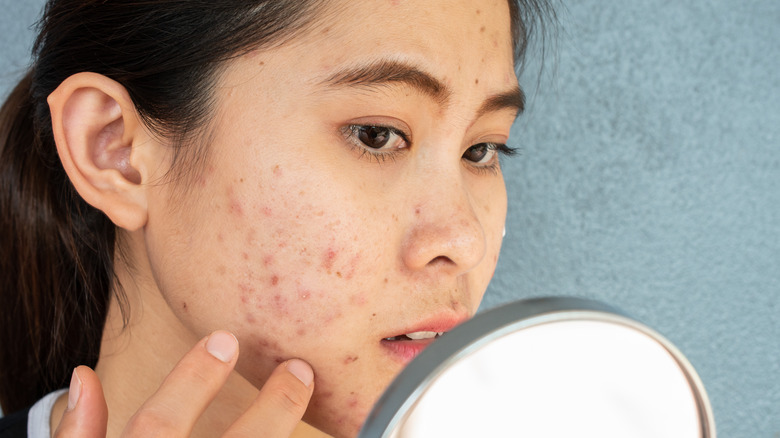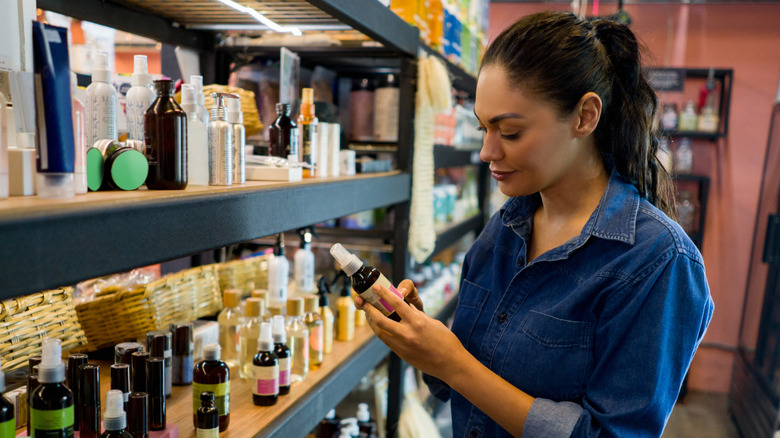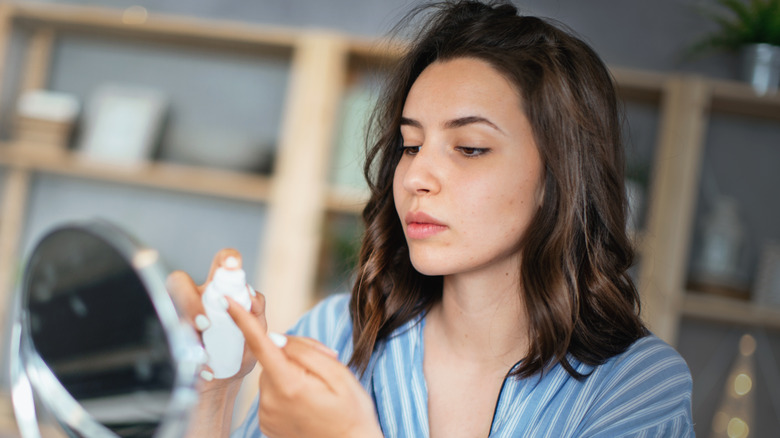Excess Testosterone Could Be Causing Your Acne Breakouts (Even If You Don't Have PCOS)
Struggling with acne can feel like an isolating and all-encompassing problem. While many people experience some acne throughout their lifetime, persistent breakouts can take a toll on your self-esteem or even begin to affect your mental health. The common causes of acne are often associated with hormonal changes during puberty, excess oil production in your skin, or even diet and lifestyle habits.
There have been several studies linking dairy consumption to an increase in acne and the reason is believed to be due to the hormones in the milk. Since lactating cows have naturally occurring hormones, their milk can interfere with your own hormones. This can lead to an increase in sebum production, resulting in oily acne-prone skin.
According to Riverchase Dermatology, those who are more acne prone already may find that milk makes it worse because of its inflammatory effects. Interestingly, testosterone is another hormone that can cause acne when it's out of balance in your body, but this one might be harder to identify.
Not all supplements are good for you
When acne moves beyond your teen years, it can be more challenging to understand the root cause of it. You may start switching out your shampoos, conditioners, or even lotions in a panic because certain ingredients have been said to clog pores.
However, before you spend a fortune on new skincare products, you might want to double-check your supplement regimen. Oftentimes, vitamins and minerals will be advertised as a clear skin supplement or promoted for optimal health. What many people don't know is that over-supplementation of certain nutrients can actually have the opposite effect, leading to consistent breakouts and chronic acne.
According to The EveryGirl, the common supplements to look out for are vitamin D, B12, and zinc because an excess amount can increase your testosterone levels, leading to hormonal imbalances and breakouts. As skincare expert Danielle Gronich explained on The Everygirl Podcast, certain supplements contain these vitamins in doses much higher than the daily recommended amount. While acne seems like an external problem, it is often caused by a deeper imbalance within the body and so looking at the supplements you are taking every day is a good place to start.
PCOS is a common hormonal problem
Excess testosterone in your body can also be a side effect of another hormonal imbalance unrelated to your supplements. When you have PCOS, there is a lot that happens to your body. PCOS stands for polycystic ovarian syndrome and usually results in irregular periods, painful cysts on the ovaries, and an increase in androgen levels, or "male sex hormones".
According to Johns Hopkins Medicine, weight gain, infertility, oily skin, and acne can all be symptoms of PCOS but certain diet or lifestyle changes can help to mitigate them. While eating nutrient-rich foods and exercising is often beneficial advice for everyone, those with PCOS may also find value in certain medications like birth control pills.
Luckily, there are many skincare products that will actually help cystic acne caused by PCOS. At the end of the day, it's important to understand the difference between hormonal acne and bacterial acne – and how to treat both. While PCOS is a relatively common hormonal issue, there are other reasons for increased testosterone levels. Therefore, if you are regularly taking supplements and struggling with acne, looking into your vitamin intake may be a good place to start.


